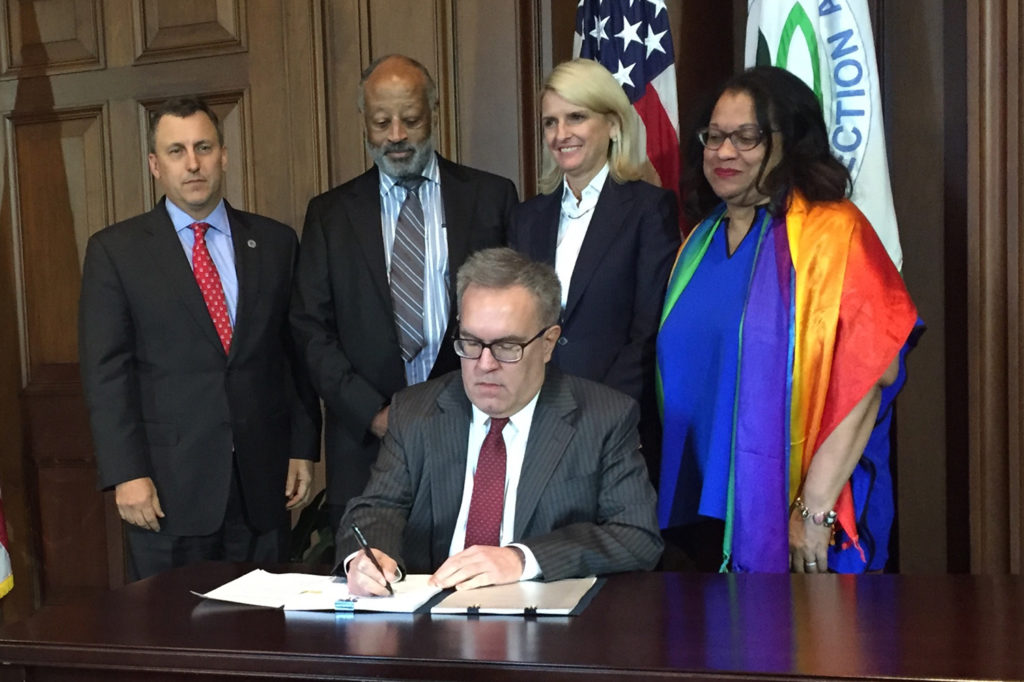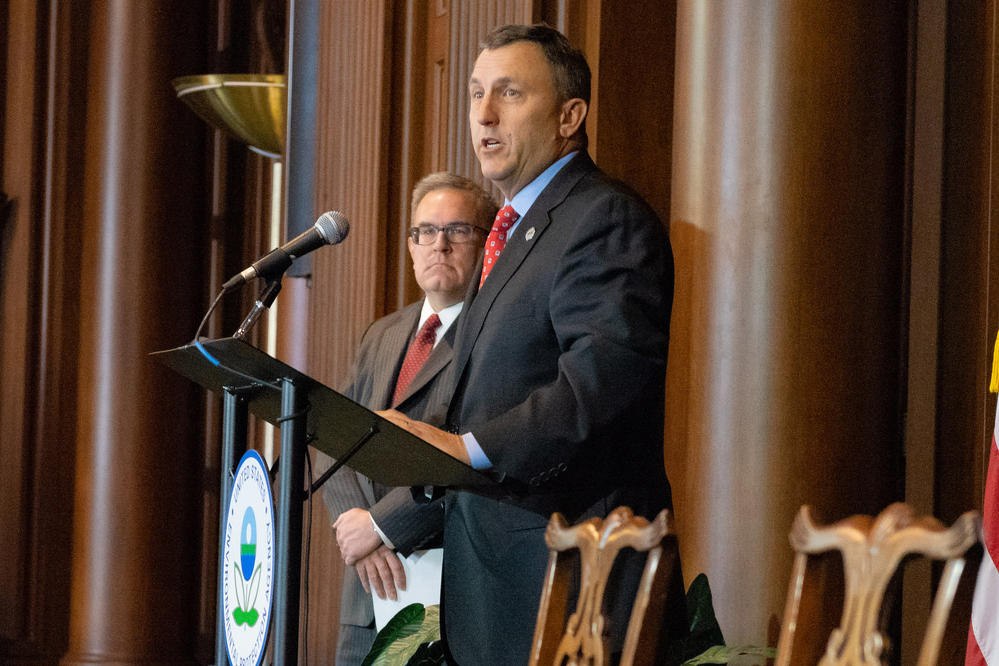
NRECA welcomed action by the Environmental Protection Agency to rescind current requirements that all new or modified coal-based power plants include carbon capture technology, which is neither widely available nor affordable.
“We think it is very important that the rules of the road for new power plants need to reflect the state of technology as it is today,” said Kirk Johnson, NRECA senior vice president for government relations.
“The previous regulation did not do that. That’s why we opposed it, that’s why we commented heavily on it, that’s why we litigated on it,” he said. “We want to make sure these rules reflect the true nature of where technology is today.”
The EPA invited Johnson to speak at an event earlier this month where acting EPA Administrator Andrew Wheeler unveiled the proposed rule to reset “new source performance standards” for greenhouse gas emissions from new coal and natural gas power plants.
The proposal would replace the 2015 mandate for carbon capture and storage technology on new or overhauled coal generation.

Johnson said that any new regulation encouraging advanced technology must keep electricity affordable. Not-for-profit electric co-ops serve one in eight Americans and most of the country’s persistent poverty counties.
“We represent some of the poorest areas this country; people who cannot afford to have significant increases in their energy and electric bills,” Johnson told the gathering of industry and government officials and media.
“Our job is to look out for those consumers who own their electric utility and to make sure we are prepared, not just for today’s needs but for the future.”
He also noted that co-ops support a wide array of clean energy research and development, including sponsorship of the X Prize Foundation’s ongoing carbon capture competition. Basin Electric Power Cooperative in Bismarck, North Dakota, has dedicated its Dry Fork Station in Wyoming to serve as the Integrated Test Center for that research.
“NRECA has financially supported research because we know that today’s trends will eventually change direction,” said Johnson. “We want to make sure we have available resources to meet whatever those next trends will be.”
The EPA’s proposal will be subject to a public hearing and 60 days of public comment following its publication in the Federal Register.
Cathy Cash is a staff writer for NRECA.